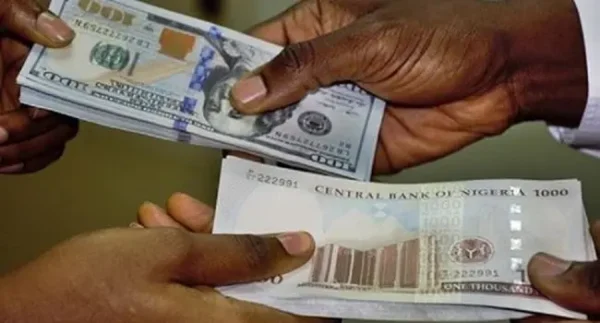The Naira on Friday experienced huge appreciation at the official market, trading at N1,142.38 to the dollar.
Data from the official trading platform of the FMDQ Exchange, a platform that oversees the Nigerian Autonomous Foreign Exchange Market (NAFEM), revealed that the Naira gained N88.23.
This represents a 7.16 per cent gain when compared to the previous trading date on Monday, April 8, exchanging at N1,230.61 to a dollar before the Sallah holiday.
The total daily turnover increased to $281.34 million on Friday up from $125.55 million recorded on Monday.
Meanwhile, at the Investor’s and Exporter’s (I&E) window, the Naira traded between N1,265 and N1,100 against the dollar.
Economic experts have continued to praise both fiscal and monetary policies of President Bola Tinubu’s administration responsible for the steady Naira appreciation.
The CBN, during its policy meetings held in February and March, implemented a total of 600 basis points in interest rate increases.
This helped tackle dollar scarcity, reduced volatility, and decreased reliance on parallel markets.
The naira is the currency of Nigeria. One naira is divided into 100 kobo. The Central Bank of Nigeria (CBN) is the sole issuer of legal tender money throughout the Federal Republic of Nigeria.
It controls the volume of money supplied in the economy in order to ensure monetary and price stability. The Currency Operations Department of the CBN is in charge of currency management, through the designs, procurement, distribution and supply, processing, reissue and disposal or disintegration of bank notes and coins.
A major cash crunch occurred in February 2023 when the Nigerian government used a currency note changeover—delivering too few of the new notes into circulation—to attempt to force citizens to use a newly-created government-sponsored central bank digital currency. This led to extensive street protests.
NAN



